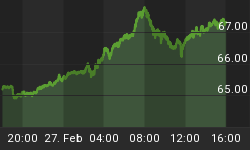Last week, the European Central Bank abandoned all pretense that the euro would be the worthy heir of the Deutsche mark; based on the enormity of the nearly $1 trillion bailout of Greece and the moral hazard it creates for other spendthrift member-states, the euro is instead on its way to becoming the worthy heir of the drachma. While the bailout was intended to restore calm to the continent, thereby strengthening the euro, the result is a currency that has lost its shot at glory. Like Terry Malloy... it coulda been a contender.
Prior to this bailout, many investors - myself included - held to the belief that the German-led eurozone would be more fiscally responsible than countries whose governments have unilateral control over their own currencies. Given the decentralized political structure of the eurozone and the independence of the ECB, it was assumed that Western Europe would be unlikely, and perhaps unable, to inflate its way out of debt. As a result of this assumption, Europeans have enjoyed low interest rates and favorable exchange rates since the euro's introduction.
However, many member-states, Greece first among them, abused the borrowing privileges conferred by a strong currency and, to put it bluntly, bit off more than they could chew. Rather than allowing Greece to default, which would have put real teeth into Europe's previously untested commitment to fiscal responsibility, Europe proved it was all bark and no bite. The net effect has been to demonstrate that the ECB will monetize the debts of any member-state that has borrowed too much. As this understanding sinks in around the globe, the euro just sinks.
Unfortunately, many are mistaking this euro weakness for dollar strength. A quick glance at the price of gold - which has made new highs in both currencies - quickly disproves this myth. The fact is that both the dollar and the euro are losing value. At the moment, the euro is losing value faster; however, in the race to the bottom, my money is still on the dollar to win.
The remainder of this article and even more in-depth analysis of the euro/dollar "race to the bottom" are available in the May edition of my newsletter, The Global Investor. This issue also features fresh ideas on oil investing, including two oil services companies I think are worth watching. Click Here for complimentary access.
Click here for a description of my best selling just-released book How an Economy Grows and Why it Crashes.
For in-depth analysis of this and other investment topics, subscribe to The Global Investor, Peter Schiff's free newsletter. Click here for more information.















